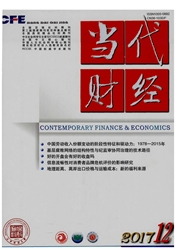

 中文摘要:
中文摘要:
通过建立一个具备货币替代、金融加述器和负债美元化的中型开放经济动态随机一般均衡模型,利用中国宏观季度数据进行贝叶斯估计,结果表明:中国的货币政策及汇率制度可由一个有管理的浮动汇率制形式的货币政策规则加以经验描述,货币政策的传导受到金融摩擦和新兴市场经济体特征因素的影响;并且,金融摩擦和新兴市场经济体特征会造成更为积极的货币政策干预,弱化货币政策在稳定经济方面的表现,并带来更大的福利损失。因此,应该探索一系列更为灵活的外汇政策,加快汇率市场化改革,逐步开放国内金融市场。
 英文摘要:
英文摘要:
Through establishing a medium-scale open economy DSGE model with currency substi- tution, financial accelerator, and liability dollarization, this paper conducts a Bayesian estimation with China's quarterly macroeconomic data. The results show that China's monetary policy and exchange rate regime can be empirically described by a monetary policy rule in the form of a managed floating exchange rate regime. The transmission of monetary policy is under the influence of financial frictions and the characteristics of emerging economics. In turn, financial frictions and the characteristics of e- merging economics would result in more active monetary policy intervention, which will weaken the role of monetary policy in stabilizing the economy, thus more welfare losses will be caused. There- fore, we should explore a series of more flexible foreign exchange policies, speed up the market-ori- ented exchange rate reform, and open up the domestic financial market step by step.
 同期刊论文项目
同期刊论文项目
 同项目期刊论文
同项目期刊论文
 期刊信息
期刊信息
